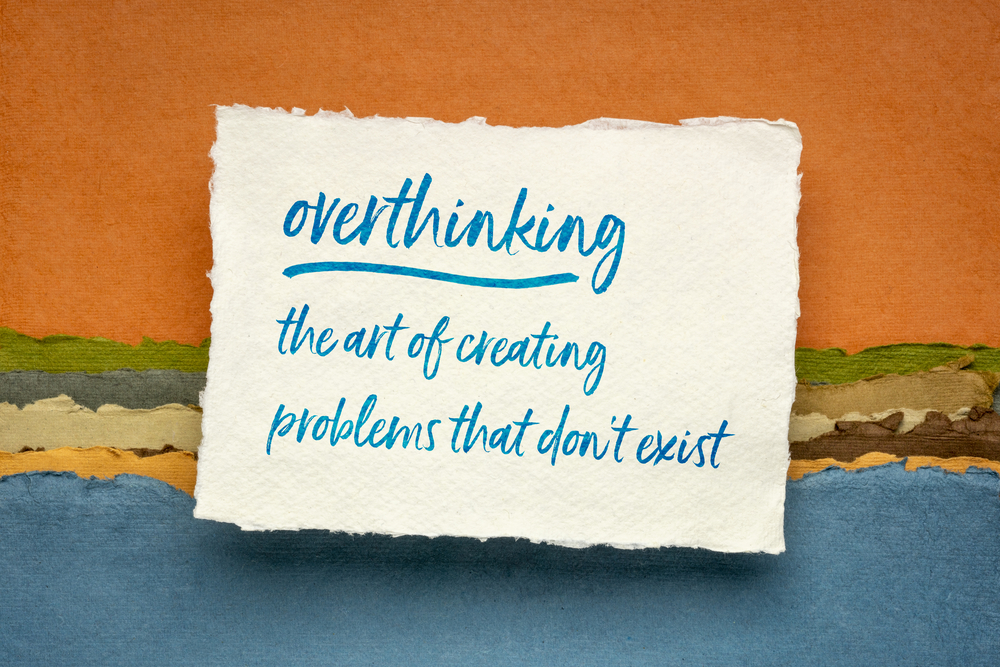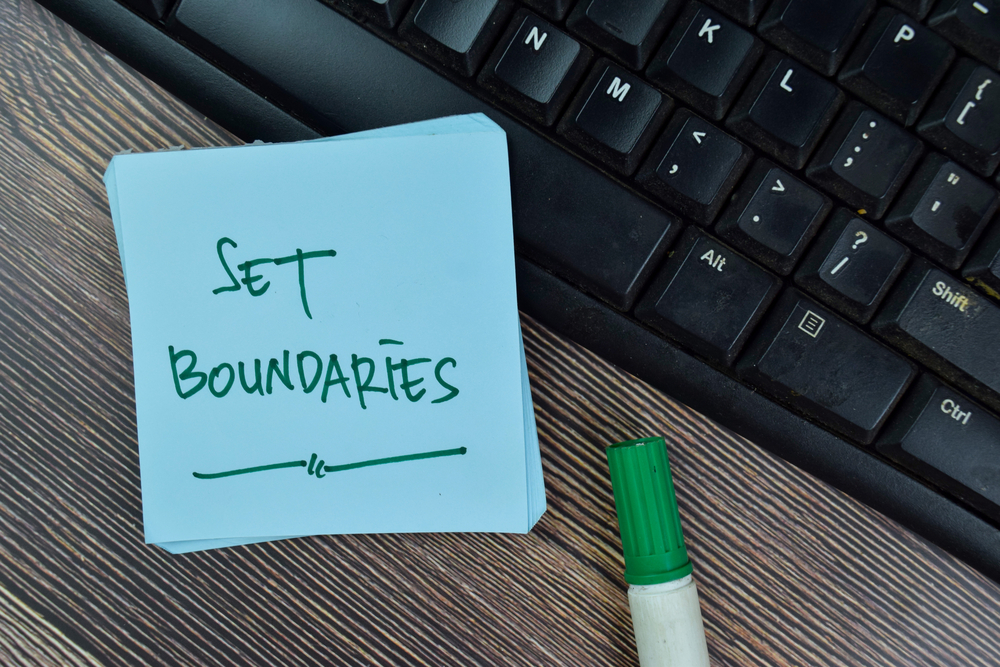Dealing With Insecurities In A Relationship: Top Tips For A Healthy Bond
 Feeling insecure in a relationship can often feel like walking through a minefield. You don't know when a wrong step might lead to an explosion of worry or doubt. Relationship insecurities can lead to misunderstandings, fights, and even breakups if handled improperly. Open communication and trust are key pillars that keep the structure of love […]
Feeling insecure in a relationship can often feel like walking through a minefield. You don't know when a wrong step might lead to an explosion of worry or doubt. Relationship insecurities can lead to misunderstandings, fights, and even breakups if handled improperly. Open communication and trust are key pillars that keep the structure of love […]Feeling insecure in a relationship can often feel like walking through a minefield. You don't know when a wrong step might lead to an explosion of worry or doubt. Relationship insecurities can lead to misunderstandings, fights, and even breakups if handled improperly.
Open communication and trust are key pillars that keep the structure of love strong against the winds of insecurity.
Did you know that overthinking is one of the main culprits behind relationship insecurities? It's true; letting your thoughts run wild can create problems that weren't there in the first place.
This article will help you understand, address, and overcome these insecurities with practical advice to reinforce your bond with your partner. Ready for a healthier relationship? Keep reading!
Recognizing Insecurities

Recognizing insecurities involves understanding the triggers that make you or your partner feel less confident in the relationship. These triggers might include past traumas, fear of losing one another, or simply misunderstanding each other's intentions.
Identifying these signs early can prevent them from growing into bigger issues that are harder to resolve. Paying attention to feelings of jealousy, constant need for reassurance, and an urge to check on your partner excessively can indicate underlying insecurities.
Additionally, noticing a decline in self-esteem or increased defensive behavior during conversations about the relationship can signal insecurities. Though subtle, these signs are crucial indicators that should not be overlooked.
Encouraging each other to share personal victories and setbacks can further highlight areas of insecurity that need attention. Such mutual support fosters a nurturing environment, allowing both partners to feel valued and understood, essential for overcoming feelings of inadequacy or fear.
Dealing with these feelings requires honesty and acknowledging one's needs without judgment. Addressing these insecurities means being open about fears and working together towards emotional intelligence and self-love.
Communication plays a key role here; sharing your concerns lays the groundwork for building trust and strengthening bonds.
Communicating Openly

After acknowledging the insecurities lurking within a relationship, the next crucial step is to foster an environment where both partners can communicate openly. This means creating a safe space to share fears and worries without judgment.
People must express their feelings clearly and listen actively to their partner. Open communication acts as a bridge, reducing misunderstandings that often fuel insecurities.
Partners should make it a habit to talk about their day, share personal thoughts, or discuss anything bothering them. This level of openness nurtures trust and deepens the connection between them.
It tackles overthinking by providing clarity directly from your partner instead of assuming what they might be feeling or thinking. Honest dialogues build emotional intelligence within the relationship, empowering both individuals to handle insecurities more effectively while strengthening their bond.
Embracing vulnerability within these conversations can significantly enhance the quality of communication. Admitting insecurity or inadequacy is not a sign of weakness but a step towards building a stronger, more resilient relationship.
Couples can approach these topics with empathy and care by recognizing that everyone has insecurities.
Building Trust and Reassurance
Building trust and reassurance in a relationship takes effort from both partners. They must communicate openly, show empathy and reliability, and overcome insecurities together. Trust grows when actions match words, proving both are committed to the bond.
This commitment includes actively listening to each other's concerns without judgment and responding with support and understanding. Emotional intelligence plays a key role here; recognizing your partner's feelings and reacting with compassion strengthens your trust.
Consistently offering emotional support also helps build a secure environment where both can express their thoughts freely. Partners must focus on positive aspects of the relationship, which fosters confidence in each other's love and loyalty.
Over time, this foundation of trust enables couples to face challenges together rather than letting doubts or overthinking damage their connection. Building self-esteem becomes an integral part of maintaining this healthy bond.
Nurturing Self-esteem

After establishing a foundation of trust and reassurance, it's crucial to turn attention toward nurturing self-esteem within the relationship. High self-esteem is a buffer against insecurities and doubts, allowing both partners to feel more secure in themselves and their bond.
Encourage each other to engage in activities that bolster confidence and promote emotional well-being. Celebrate successes, no matter how small, and offer genuine compliments regularly.
This practice reinforces positive perceptions of oneself and strengthens the connection between partners.
Focus on personal growth together by setting achievable goals that enhance individual strengths and address areas for improvement. Support each other in pursuing hobbies or interests that ignite passion and joy, fostering an environment where both partners can flourish independently while growing closer as a team.
This approach combats overthinking and builds a culture of mutual appreciation and understanding within the relationship.
Overcoming Past Traumas
Overcoming past traumas is a crucial step in dealing with insecurities within relationships. It's essential to face these painful experiences head-on, with the understanding that healing is not only about forgetting but learning and growing from them.
Therapy can provide a safe space to explore these feelings and begin moving forward. Trust issues often stem from unresolved wounds, so addressing them directly can open pathways to building a stronger foundation of trust with your partner.
Creating an environment of openness and empathy in your relationship allows for vulnerabilities to be shared without fear of judgment. This approach fosters deeper connections and allows both partners to support each other through healing journeys.
Cultivating self-love during this time is paramount; recognizing your worth outside of trauma empowers you to build confidence and resilience. Strengthening bonds through emotional intelligence leads to overcoming insecurities together, making room for a healthier, more secure relationship dynamic.
Setting Healthy Boundaries

One of the most important aspects of dealing with insecurities in a relationship is learning to set healthy boundaries.
Boundaries are the limits we set to protect our physical and emotional well-being. They are essential for maintaining a healthy, respectful, and fulfilling relationship. Without boundaries, it's easy to become enmeshed in our partner's issues and lose sight of our own needs and identity.
Setting boundaries doesn't mean being rigid or inflexible; it simply means communicating your needs and expectations clearly and respectfully.
For example, if you feel your partner is becoming too clingy or demanding, you might set a boundary by saying, "I need some time alone to recharge and focus on my interests. Let's plan to spend some quality time together tomorrow evening." This way, you're not denying your partner's needs but also taking care of your own.
Boundaries also involve respecting your partner's limits and not pressuring them to do things they're uncomfortable with. If your partner expresses a need for space or alone time, it's important to honor that request without taking it personally or trying to change their mind. Trust that your partner knows what they need, and support their boundaries.
Of course, setting boundaries can be challenging, especially if you're dealing with insecurities or past relationship trauma. Worrying about your partner's reaction negatively or leaving you if you assert your needs is natural.
However, a healthy relationship involves two individuals who respect each other's boundaries and work together to create a supportive, nurturing environment.
Ultimately, setting healthy boundaries is an ongoing process that requires open communication, self-awareness, and a willingness to prioritize your well-being and your partner's. By learning to set and respect boundaries, you can build a stronger, more fulfilling relationship based on mutual understanding and respect.
Seeking Professional Help If Needed

Reaching out for professional help can be crucial in overcoming insecurities within a relationship. Therapy allows both partners to explore deep-rooted issues and develop strategies for building trust and improving communication.
Therapists provide a safe space where you can learn emotional intelligence and self-love, key components in dealing with relationship anxieties and insecurity triggers.
Couples therapy or individual counseling helps identify the causes of insecurities and devise practical solutions. Professionals guide you through reinforcing your bond, enhancing confidence, and fostering an environment of openness.
This support is invaluable in creating a healthy, intense connection that thrives on mutual understanding and respect.
Cultivating A Supportive Environment

Creating a supportive environment plays a crucial role in overcoming insecurities within a relationship. Both partners need to work together, offering emotional support and understanding.
This means listening without judgment, encouraging each other's growth, and recognizing the effort required to deal with insecurities. Such an atmosphere fosters trust and open communication, which strengthens bonds.
Encourage acts of kindness and appreciation between you and your partner. Small gestures can make a significant difference in building confidence and affection. This effort helps combat overthinking and doubts by ensuring both feel valued and understood within the relationship.
With this foundation of support, moving forward becomes easier for everyone involved.
Conclusion
Overcoming insecurities in a relationship can strengthen the bond between partners. Through open communication, trust-building, and emotional support, individuals can address their fears and grow closer.
Acknowledging when professional help is needed shows strength and commitment to the relationship's health. It's all about fostering self-love and confidence while empathizing with each other's vulnerabilities.
This journey enriches the connection, making it resilient against future challenges.


